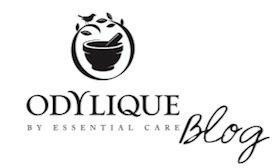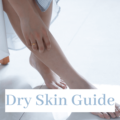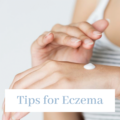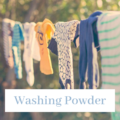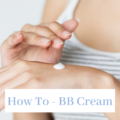What Causes Eczema and What’s Best To Treat Eczema?

When we first launched Odylique (was essential care) in 2003 the National Eczema Society estimated that 1 in 5 children experienced eczema at some point before adulthood. Ten years on, that figure doesn’t show signs of improving. In 2009 one NHS study even suggested that eczema cases had increased by 40% in the preceding years.
But are we any closer to knowing what causes eczema or how to treat it? This week is National Allergy Week and of all the allergy-related conditions, I wanted to put the spotlight on this irritating – in more ways than one – condition.
Causes Of Eczema
Eczema is tricky because it has so many causes. Scientists at the University of Oregon State recently found that eczema may be due to a malfunctioning protein which is a genetically inherited condition. But as yet no cure or permanent solution for eczema has been found and we are still in a situation where minimising and managing it is the best we can do.
Some people can live with eczema-prone skin – without suffering outbreaks, and indeed many people grow out of childhood eczema. The key is knowing what your specific triggers or allergens are. But the triggers of eczema are widespread – I mentioned climatic conditions and stress, but there are many others: dairy products, wheat, cats and other animals, bacteria, synthetic chemicals (particularly fragrance and harsh detergents) in cosmetics and cleaning products, dust, road pollution, too much washing, the list goes on.
Our Advice For Treating Eczema
The best advice we believe is to keep a diary of outbreaks and healthy phases, noting what you eat, what you’ve done on that particular day and where you’ve been, so that you can establish a trend Allergy testing if you can persuade a doctor to invest in it, is also worthwhile. This can be particularly useful for identifying allergies to food such as dairy or wheat.
As well as the above allergens, we would also suggest being wary of aqueous cream which is routinely prescribed by doctors. A recent study found that it can actually make the symptoms of eczema worse. It is mistakenly prescribed as a moisturiser when it fact it was originally developed as a soap. Being alkaline – whereas the skin has a naturally low pH (mildly acidic) – it can break down the skin’s natural barrier if left on as a cream. This is exacerbated in children whose skin is thinner than adult skin. So other than being cheap aqueous cream really doesn’t have much benefit.
What is universally agreed upon is that people with eczema need a good moisturiser because they do not produce enough natural oil in their skin, so it tends to become dry, cracked and irritated.
There is then some discord on what’s the best moisturiser for eczema. Most GPs are still of the opinion that a liquid paraffin cream is beneficial. Those in the natural camp like us would vehemently disagree! We believe that until the miracle cure is found, reducing your allergen exposure* and good natural skin care is the key to keeping eczema at bay:
Good quality plant oils rich in skin-soluble vitamins help to replenish dry, damaged skin. ‘Dead’ oils like liquid paraffin or mineral oil provide no nutritional benefit and can provide an occlusive layer that stops the skin from breathing. Plant extracts have demonstrated genuine benefits in reducing inflammation and helping skin repair – there is particularly good documented evidence around certain extracts of aloe vera, virgin coconut oil, calendula and chamomile. Anecdotally there is a growing body of evidence too. We receive amazing testimonials from customers who have seen excellent results after switching from ‘conventional’ to natural ways of managing allergy-prone skin.
Products Recommended For Eczema
 |
 |
 |
 |
| Repair Lotion | Ultra Rich Balm | Pure Olive Cleansing Bar | Gentle Herb Shampoo |
Want To Try Our Products?
We only source the kindest ingredients from trusted suppliers who don’t practice unethical or cruel methods of farming, which is why we are able to label every single one of our products cruelty free!
Use code: TreatEczema20 at the checkout for 20% off your order! – *Limited to one use per customer*
More Advice?
For more info and suggestions around this topic, have a look at our full information sheet on eczema.
*With skincare it’s crucial to avoid a moisturiser, or any toiletries or household cleaning products that contain ingredients unsuitable for sensitive skin. Artificial fragrance (usually denoted on the label as parfum) and sulphate detergents are two of the major culprits but there are unfortunately many others. Certified organic skincare is usually the safest route for peace of mind.
What is Dandruff? How To Beat A Flaky Scalp Naturally.

You take care of your hair; you wash it regularly,…
